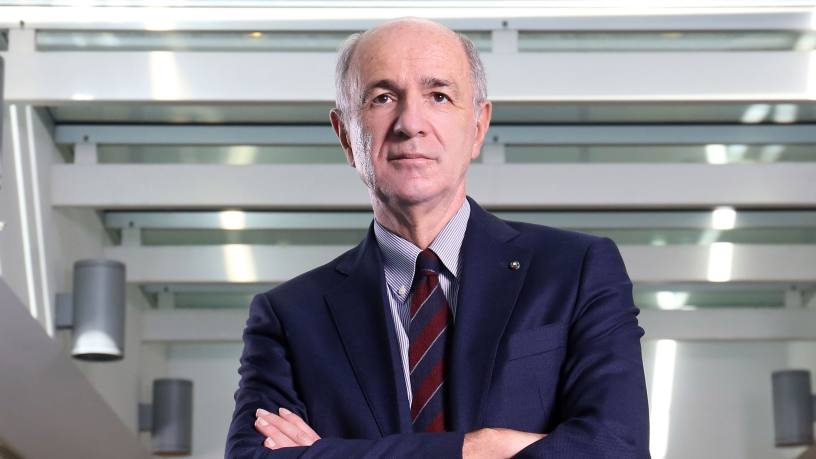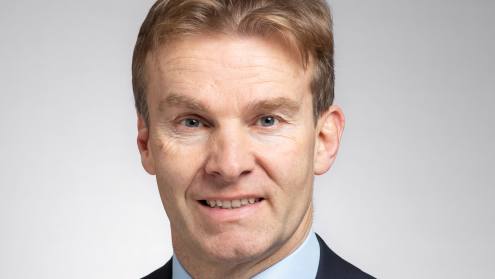The banking world can offer many interesting career paths over the course of a lifetime and Corrado Passera has taken full advantage of its opportunities. The Italian financier has played a big role in the country’s economic development over the past two decades. In the summer of 2006, he led the merger to create the country’s largest bank, Intesa Sanpaolo.
Then, in November 2011, he joined Mario Monti’s technocratic government as a minister in the wake of the European sovereign debt crisis. He was responsible for economic development, infrastructure and transportation, and drove reforms to encourage Italy’s start-up scene, which has a connection to his current venture, Illimity — a specialised bank that provides credit to small and medium-sized enterprises with strong potential but limited funding.
Career history: Corrado Passera
2018-present: Founder and CEO of Illimity
2011-2013: Minister of economic development, infrastructures and transportation in Italian government
2007-2011: CEO of Intesa Sanpaolo
2002-2006: CEO of Banca Intesa
1998-2002: CEO of Poste Italiane
Its main business areas include growth credit, turnaround credit and distressed credit, alongside several tech ventures that support the core service lines. A fundamental strength is its agile cloud-based technology that contrasts with IT at traditional investment banks.
“We have a two tier approach where we select a company and place banking experts alongside industry experts that are still very active in that specific market,” Passera says. “Then a long-term plan is made with the company, and we finance them. We stay with them until the situation is back to normality.
“And that, probably, is the reason why we have been able to grow, compete versus traditional banks and keep the risk level very low.”
Robust growth
The fruits of this model show up in the full-year 2023 results published in February, where it was either a record or very strong year for various divisions. For instance the investment bank had FY23 profit before tax at €10.1mn, up 29 per cent year on year.
The growth credit division saw net customer loans up 17 per cent year on year, despite early repayments, while pre-tax profit hit €80mm, up 49 per cent year on year.
One area that has become more difficult over the past few months is the non-performing loan side of distressed credit. The bank has decided to exit NPL direct investments and evolve into asset-based financing. Its entire balance sheet will now be devoted to companies that are growing, developing or restructuring.
Passera says: “We decided to move the investment mix toward companies that are going concerns and not gone concerns because that [NPL] market is no longer interesting.
“Any SME that, in our opinion, has the will or the skill to get back to performing well remains part of our target strategy. Any company where the only outcome is the recovery of collaterals, so bad loans, is not an area of direct investment for us.”
He adds that there are several reasons why the direct investment side of the NPL market is no longer attractive. “The market is much smaller because Italian banks have gone through the cleaning of their balance sheets,” he explains. “They have sold around €400bn worth of NPLs as of today, so the primary market is very small.
“Second, higher interest rates make the profitability of direct investment in NPL portfolios much lower because of funding costs.
“And third, the regulations that apply to our sector penalise banks compared to non-banks. So, because of all these reasons, we decided to first reduce and now eliminate any more direct investments in NPL portfolios, and put the money into the special situations sector.”
Passera sees special situations, also known as turnaround situations — where an SME needs a bank due to corporate problems — as an area of “immense growth”.
He expects the number of companies that need help to restructure from the banking sector to increase due to geopolitical pressures.
He also argues that banks like his are a better fit for companies in a turnaround situation compared to credit funds that can only provide limited support.
“They just provide credit once, while we are a bank that escorts the company through the whole process. So we provide short- and long-term credit alongside transaction platforms.
“Second, as a bank we can be more competitive than credit funds in terms of cost, because our ability to fund on the retail market makes our funding generally more competitive than institutional funds.”
Future sources of growth for the bank include more turnaround situations, acquisition finance and structured finance, Passera notes. Other potential areas are factoring and trade receivable financing.
Entrepreneurial mindset
For Passera, it is critical that the bank’s culture remains entrepreneurial so that it can adapt in ways large banks cannot.
“We try to be entrepreneurs. It means that each person has a responsibility to develop new ideas and new things to do. So we have our core business, but everything was done through an IT system that became a business in itself. Now we are selling our IT services,” he explains.
“One of the reasons we made this money last year was that we sold some of the applications of the technology to another company. So the tech division [of a bank] that is usually a cost centre became a profit centre for us.”
This strength in tech not only allowed Illimity to boost profits, but also become an incubator for other start-ups.
It created an IT platform for real estate broking, another platform for small companies and joined with Banca Sella to develop the largest retail platform with almost 2mn customers in Italy.
“These are opportunistic investments — not diversification — and by selling some of them, we will create more capital and more equity to grow faster in our core businesses,” he says.
“Probably none of these start-ups will be here in three years, but we will have several other start-ups that we have developed and will be needed in five years to grow [the bank] even more afterwards.”
Life lessons
Passera believes that the best-managed companies are not only the ones that make profit, but are also useful for the community they belong to. These are the organisations that attract, motivate and retain the best people in the long run.
“There are many different conceptions of capitalism, there is the super greedy one and there is the super non-profit approach,” he says.
“Our motto is ‘make money, make profit and be useful’. In English it sounds obvious, in Italian it sounds better because the word for profit and useful is the same word.
“And my personal approach that I tried to apply, both in the past and today, is that if you build a company on these principles, you are able to retain a very large number of talented people.”
He also thinks the percentage of young people who care about sustainability and other social issues has grown: “Young people in general are more conscious about purpose, not just profits.
“Many more of them want to be proud of the company they belong to, and the pride not only comes from size and profit but also what they provide to society.”
That desire is reflected in Illimity’s work environment that is not typical of a bank. Less than 30 per cent of its staff come from banking and the majority come from a variety of different backgrounds.
Employees also come from 20 different nationalities and belong to three or four generations. This diversity helps foster innovation and is appreciated by young people.
Another aspect that helps the staff is investment in their training and development of their careers. The turnover of workers is therefore very low and encourages loyalty to the company.
All of these initiatives are there to support Illimity’s ultimate goal of serving the SMEs that are the backbone of the country’s economy.
Passera says: “We provide a service to support the bulk of the Italian economy, which is [comprised of] SMEs.
“We provide three kinds of credit for growth that other banks will not do. So that’s what we believe in — it is what we try to do and many companies that had ambitious projects, and did not find that money to realise them, managed to get funding from us and succeeded.
“This is the way for us to be purpose-led and help the SME community get the funding they could not from traditional banks.”













